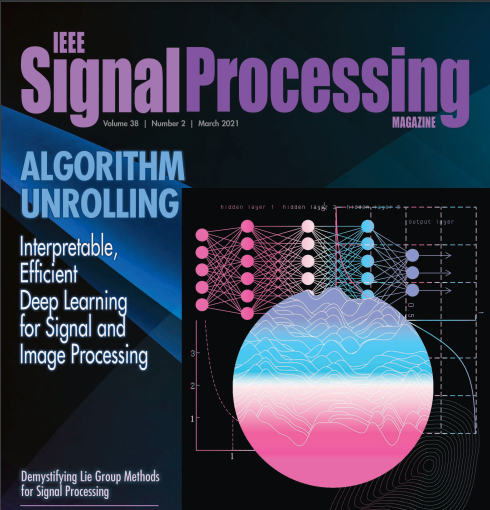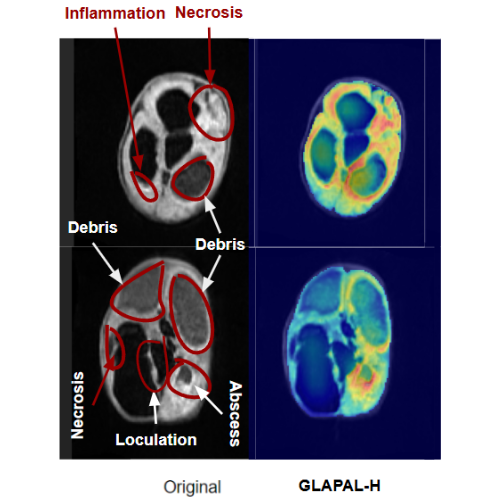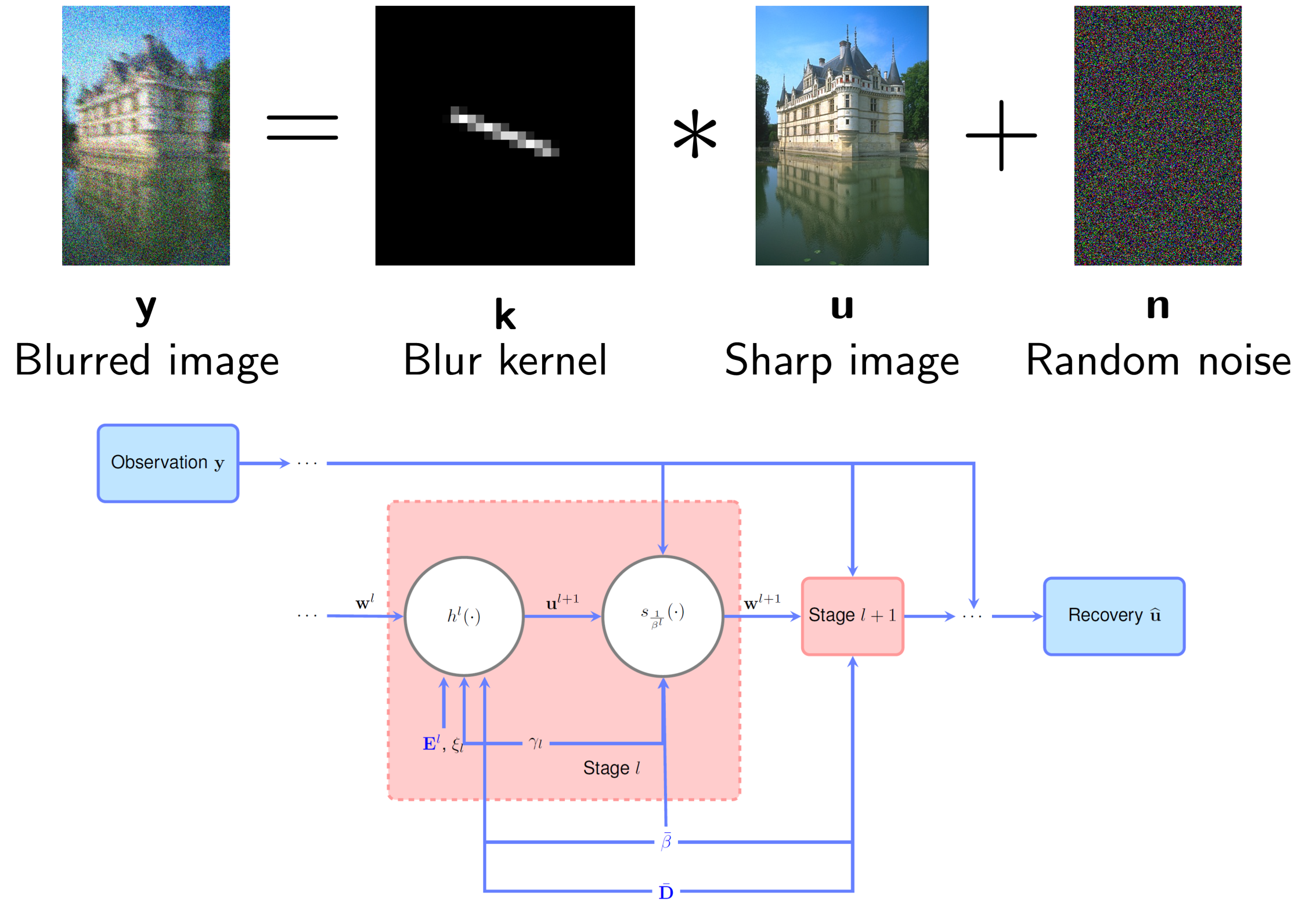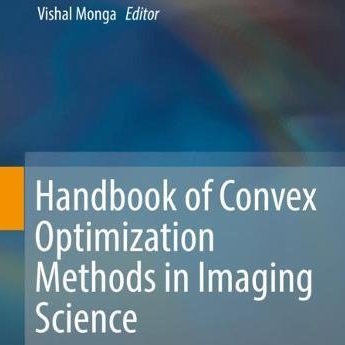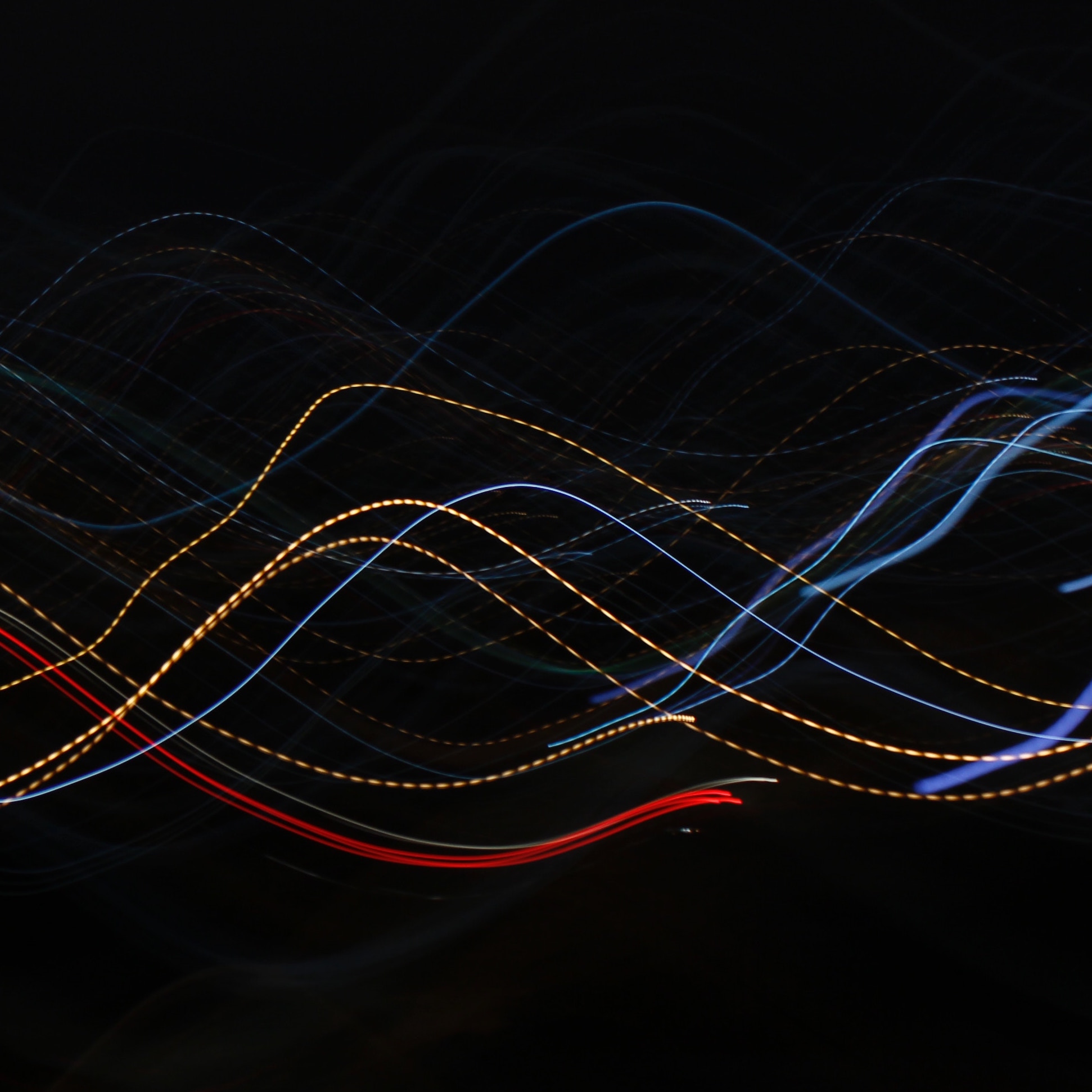NEWS
2024 SPS Best Paper Award!
Featured Article in IEEE Signal Processing Magazine
Algorithm Unrolling: Interpretable, Efficient Deep Learning for Signal and Image Processing by V. Monga, Y. Li and Y. Eldar.
The article can be found here.
Dr. Monga Elevated to IEEE Fellow!
Monga's contributions to computationally efficient image analysis and restoration are responsible for his elevation to IEEE fellow. His elevation to IEEE fellow is the most recent of a list of research-based awards, including best paper awards from the IEEE, a National Science Foundation CAREER Award and induction into the National Academy of Inventors.
The news article can be found here.
IEEE TBME
GLAPAL-H: Global, Local And Parts Aware Learner for Hydrocephalus Infection Diagnosis in Low-Field MRI
We develop GLAPAL-H, a multi-task deep learning model with global, local, and parts-aware segmentation branches for low-field MRI-based hydrocephalus classification and etiology modeling.
IEEE TCI
Deep, Convergent, Unrolled Half-Quadratic Splitting For Image Deconvolution
We propose an unrolling technique that breaks the trade-off between retaining algorithm properties while simultaneously enhancing performance.
NEW! Handbook of Convex Optimization Methods in Imaging Science
This book discusses imaging science and provides tools for solving image processing and computer vision problems using convex optimization methods. Throughout the handbook, the authors introduce topics on the most key aspects of image acquisition and processing that are based on the formulation and solution of novel optimization problems.
KEY RESEARCH COLLABORATORS
Academia
Prof. Yonina Eldar (Weizmann Institute, Israel) and Prof. Trac Tran (Johns Hopkins University)
Government Labs
Dr. Muralidhar Rangaswamy (US Air Force Research Laboratory)
Dr. Nasser Nasrabadi (US Army Research Laboratory, now West Virginia University)
Industry
Dr. Raja Bala (Prev. Xerox PARC, Now Amazon)
